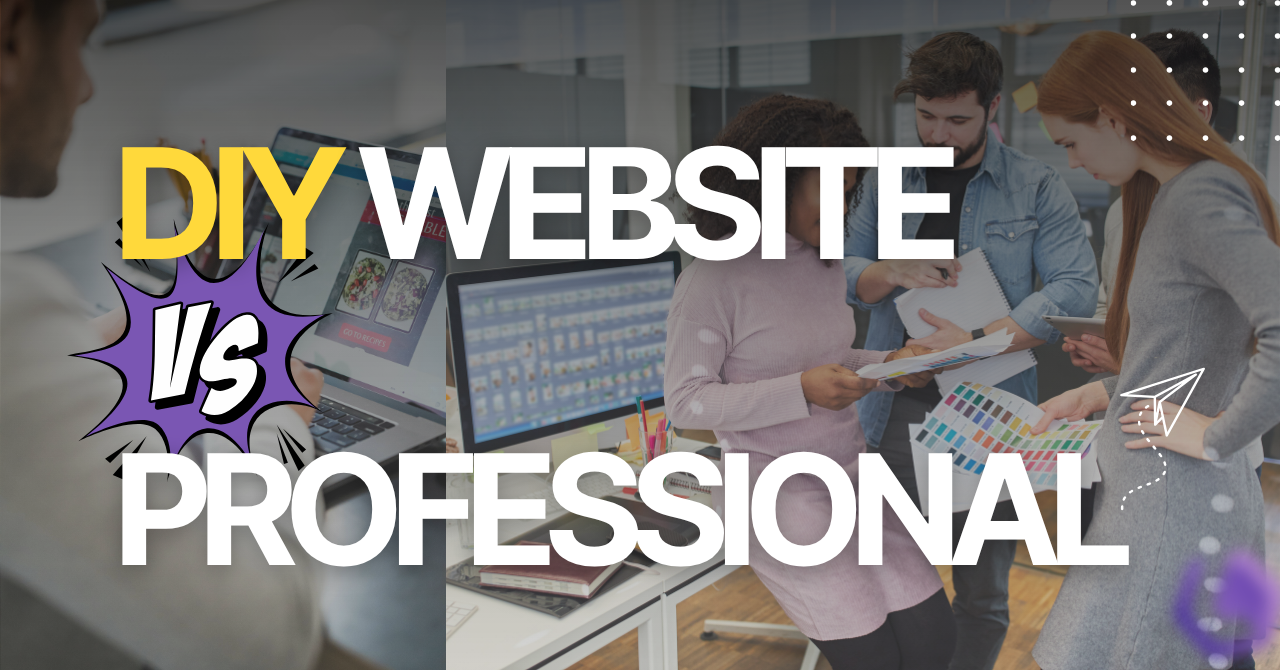- Lumos Marketing 💡
- Blog
- DIY Website vs Professional – Which is Right for You in 2025
DIY Website vs Professional – Which is Right for You in 2025
- Lumos Marketing
- June 30, 2025
-
- 0






Your complete guide to building a startup website the smart way—on your own or with expert help.
If you’re a new business owner deciding between building your own website or hiring someone to do it for you, you’re not alone. This blog breaks down the pros, cons, costs, and hidden realities of both DIY and professional website options—so you can make the best choice for your startup.
Why Your Website Matters From Day One
In today’s competitive startup landscape, your website isn’t just a nice-to-have—it’s your digital HQ. It tells your story, captures leads, builds trust, and showcases your brand to the world. It’s often the first place potential customers, partners, or investors will look you up.
In 2025, the bar for website quality is higher than ever. Users expect fast-loading, mobile-friendly, beautifully designed websites with clear messaging. If your site is hard to navigate, looks outdated, or doesn’t work well on phones, they’ll bounce—and likely head to a competitor who does look the part.
Your website needs to do more than just exist. It should perform. And that performance begins with how it’s built.
What Does It Mean to DIY a Website in 2025?
Building a website yourself has never been more accessible. Tools like Wix, Squarespace, Shopify, and Webflow make it easy to drag and drop your way to a live site with little to no coding knowledge.
You choose a template, customise colours and fonts, add your text and images, connect your domain—and boom, you’re online.
Pros of DIY Websites:
- Affordability: Initial out-of-pocket costs are very low. Many platforms offer free trials or basic plans.
- Speed: You can get something online quickly, especially for simple projects.
- Control: You can make changes whenever you like without waiting on a developer.
- Learning opportunity: Great if you enjoy figuring things out and want to build digital skills.
Cons of DIY Websites:
- Time-consuming: Even simple DIY websites can take 20–40+ hours to build properly. That’s time away from other core startup tasks.
- Amateur look and feel: Templates are often overused and may not reflect your unique brand.
- Limited features: Most DIY platforms limit what you can customise unless you pay for premium tools or plans.
- Poor SEO and performance: Without optimisation, your site may be slow, hard to find, or not Google-friendly.
- Not scalable: DIY sites often become difficult to expand or evolve as your business grows.
DIY is best for temporary MVPs (minimum viable products), idea testing, or personal projects where budget and urgency trump polish.
What Does a Professional Website Build Include?
When you hire a professional (freelancer or agency), you’re not just buying a website—you’re investing in a process designed to help your business grow.
At Lumos Marketing, we’ve created startup-friendly website packages starting from just £300. Here’s what’s typically included:
Our Basic Package Includes:
- Strategy Call: We get to know your business, ideal customers, and goals.
- Custom Design: Built using your branding or with support developing it from scratch.
- Mobile-Optimised Build: Fully responsive on all devices, tested across browsers.
- Technical SEO Setup: Titles, meta descriptions, H1s, image compression, speed tests, and more.
- Content Support: We’ll guide you on what to write or help polish your draft.
- Analytics Integration: Google Analytics and Search Console ready.
- One-on-One Support: Real people to guide you—not just help docs.
Optional Upgrades:
- Blog setup
- E-commerce (Shopify or WooCommerce)
- CRM integrations (HubSpot, Mailchimp, etc.)
- Copywriting
- Ongoing SEO/content marketing
This approach works best if you’re ready to take your business seriously, need a polished presence, or want results beyond just “looking okay.”
DIY vs Pro: Detailed Pros and Cons Breakdown
| Feature | DIY Website | Professional Website Build |
|---|---|---|
| Cost | £100–£500/year | Starts at £300 (Lumos Pricing) |
| Time Investment | 20–40+ hours | 1–3 hours for input + revisions |
| Design Quality | Template-based, possibly generic | Custom design tailored to your brand |
| SEO & Speed | Basic, limited tools | Optimised for search engines |
| Support | Forums or self-help | Expert team to support your build |
| Scalability | Limited | Built to grow with your business |
| Conversion Rate | Usually lower | Higher due to UX and conversion strategy |
This breakdown makes it clear: while DIY has its place, going pro usually delivers better results faster—and in a way that supports your business long-term.
How Much Does Each Option Cost (and What Are You Really Paying For)?
Let’s take a closer look at actual costs—and value.
DIY Website Breakdown:
- Platform subscription: £10–£30/month depending on plan
- Domain + email: £20–£50/year
- Stock photos: £10–£50 (unless you use free sources)
- Premium templates/plugins: £30–£150+/year
- Your time: 20–40 hours at your hourly worth
While these look small at first, the hidden costs add up fast.
Lumos Professional Website Breakdown:
- Base package: £300
- Add-ons: Tailored to your needs (copywriting, branding, ecommerce)
- Time invested by you: 1–3 hours
- Time saved: Dozens of hours + less trial and error
You’re paying for results, strategy, speed, and peace of mind. A pro-built site doesn’t just go live—it starts working for your business immediately.
Which Is Right for You Based on Your Stage & Goals?
Your decision should match your goals, timeline, and resources.
Choose DIY if:
- You’re in very early idea validation mode
- You have little to no budget
- You’re tech-savvy and enjoy building
- You’re OK with an MVP-style website
Choose Professional if:
- You’re ready to start gaining clients
- You want your website to reflect your brand and credibility
- You need to convert visitors into leads or sales
- You want a stress-free launch with support and guidance
At Lumos, our mission is to grow with our clients. We believe every startup deserves a great website—without the heavy costs most agencies charge. That’s why we offer affordable packages, flexible add-ons, and marketing support once you’re live.
Frequently Asked Questions
Below, we address common concerns to ease your worries and help you plan confidently, building on the insights above.
Is it really cheaper to DIY a website?
It can be—but only if your time has no value and you don’t plan to grow or scale. Otherwise, hidden costs and lost leads make DIY more expensive in the long run.
What do I get for £300 with Lumos Marketing?
You get a professional 3-page website, mobile-friendly, SEO-ready, and tailored to your brand—with expert support from start to finish.
Can I start with DIY and upgrade later?
Definitely. Many clients come to us after trying DIY first. We can rebuild or enhance what you’ve started.
What’s the biggest benefit of hiring a pro?
You save time, avoid mistakes, and launch faster with better results. A pro ensures your site performs—not just looks good.
Do you offer help beyond the website?
Yes! We provide monthly marketing packages that include social media, SEO, PPC, email marketing, and content writing—designed for startup budgets.

